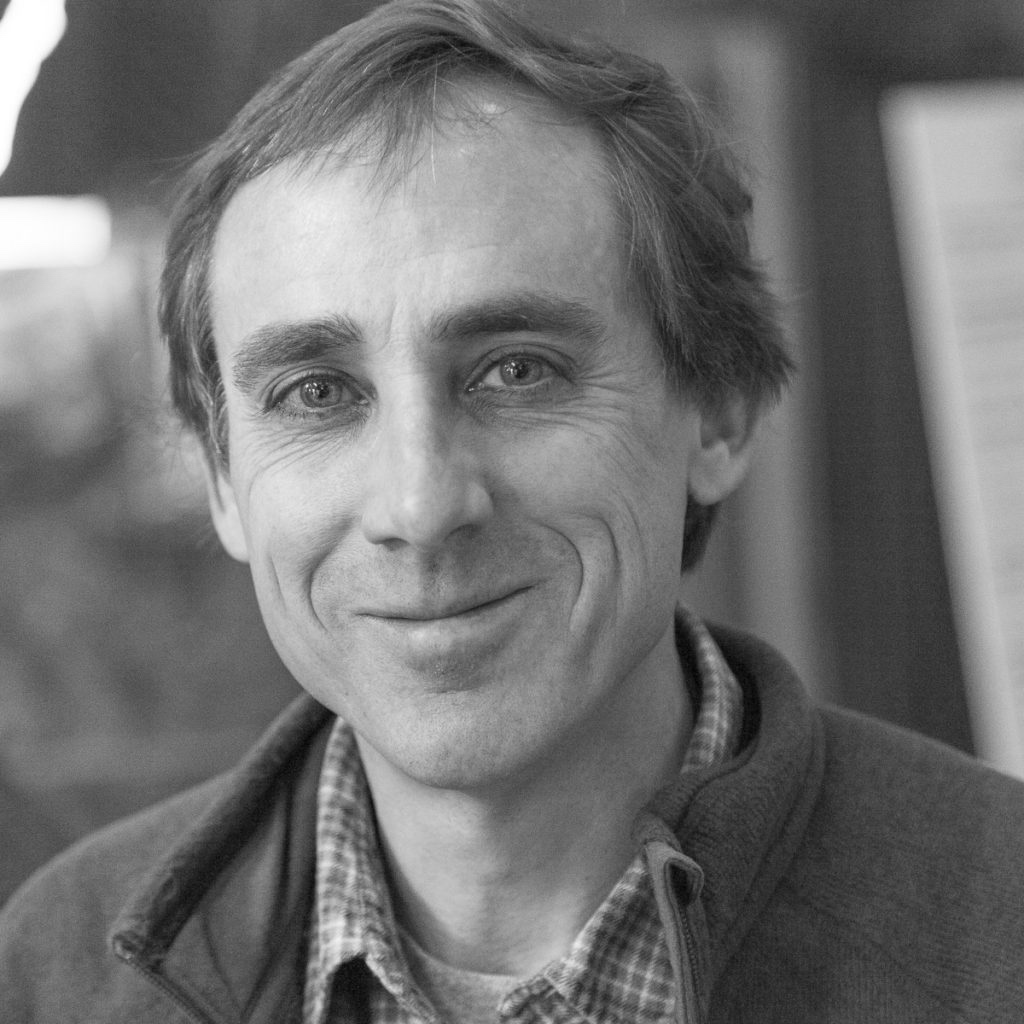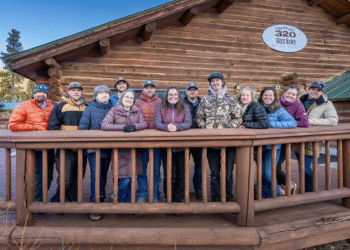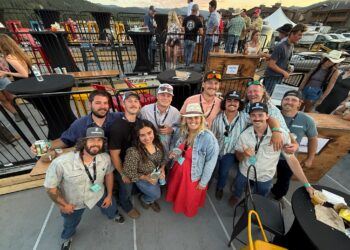
By Todd Wilkinson EBS ENVIRONMENTAL COLUMNIST
Imagine having Ted Turner as your business partner. George McKerrow, a big-picture thinker about ecology and economy, was hand-picked nearly two decades ago to help co-launch Ted’s Montana Grill restaurants that feature bison on the menu. With nearly four dozen of the eateries in 16 states, few in Montana might realize that the Bozeman restaurant is one of the busiest.
Not surprising perhaps, given that Turner’s Flying D Ranch, where the former media mogul’s relationship with bison began, is located just outside of town. Not long ago, I had a visit with McKerrow.
Todd Wilkinson: What have you learned about Ted Turner that others may not know?
George McKerrow: A lot of people on the outside are quick to be judgmental about the man. He has, at times, been rather outspoken. For me, it comes down to this: I, like Ted, have always been a bit of a renegade. We’ve always been willing to try new things that maybe others thought couldn’t be accomplished. Ted is looking out for the betterment of the environment and the world in almost everything he does.
TW: Have you succeeded in putting bison on the map of public consciousness?
GM: We have statistical proof that wherever we put a Ted’s Montana Grill and touted the healthy virtues of bison, we saw demand increase dramatically at the grocery store level. We opened restaurants from the Rockies to New York City and into corners of the Deep South. It led to a corresponding rise of public interest in bison and appreciation for them as American icons.
TW: You mentioned that among the goals of your restaurants is promoting healthy lands.
GM: The focus is on caring for the land in a way that you have healthy grasslands, healthy soils and clean water running through. Many people may not realize this, but healthy soils, grasslands and forests function as significant sinks of carbon dioxide, which is important in trying to slow the effects of climate change.
TW: You and Ted have tried to institutionalize social good at scale. Tell me how you garnered the support of the National Restaurant Association.
GM: I was on the executive board of the NRA and it occurred to me after a while that we were basically a lobbying institution and didn’t really stand for anything positive as far as environmental social values. That kind of bothered me. I went to the chairman and those in leadership and said we ought to stand for something that protects the environment and benefits the lives of customers instead of only working against something such as regulations. Here we were a $900 billion industry. I said we ought to become more environmentally conscious and less wasteful.
TW: How did you make the case?
GM: At the time, the industry used five times as much water as any other retail industry, five times as much energy, and we produced five times as much garbage and caused a tremendous negative impact on the environment. Leaders at the NRA agreed with me, and so we went to the Turner Foundation and got funding from Ted and his children for five straight years to create the “conserve movement” among restauranteurs nationwide.
TW: You’ve been described by leaders in the industry as a “sustainability evangelist.”
GM: We’ve seen the industry turn 180 degrees. The moves that were implemented are responsible nationally for tons of waste never having to enter a landfill, millions upon millions of gallons of water each year never being wasted, tons of material given new life as a recycled product, tons of grease never going down a drain and instead being repurposed, tons of food never being thrown away and feeding people who need it. Doing what’s right benefits the bottom line.
TW: Share some more thoughts about what sustainability really means.
GM: I really believe that when it’s presented as an all or nothing attitude, particularly when you are talking about environmental and sustainability objectives, you really lose the gains you might otherwise achieve. This isn’t about total perfection. Ted has said that if each of us and every business did one more impactful positive thing than negative thing every day, we’d be able to solve many of the major problems in the world.
TW: How do you assess business value?
GM: Well, for one, it’s smart business because it saves us money and the foundation of sustainability is economic sustainability. Being socially conscious positively affects the behavior and practices of the businesses and suppliers we partner with, and it has cemented a deeper relationship and more loyalty with our customers.
TW: What’s your message to consumers?
GM: Small steps forward by vast numbers of people create change in behaviors that become large scale. We all owe it to ourselves and the next generation to protect clean air and water, make space for wildlife, and do what we can. On all the vehicles Ted drives, including his small Prius, he has a bumper sticker that reads, “Save Everything.” It used to be “Save the Humans” but the fate of everything is intertwined with the choices we make. We’re all stakeholders. Doing right by the environment and each other gives us sustenance for the human soul.
Todd Wilkinson is the founder of Bozeman-based “Mountain Journal” and is a correspondent for “National Geographic.” He’s also the author of “Grizzlies of Pilgrim Creek” about famous Jackson Hole grizzly bear 399, which is available at mangelsen.com/grizzly.














